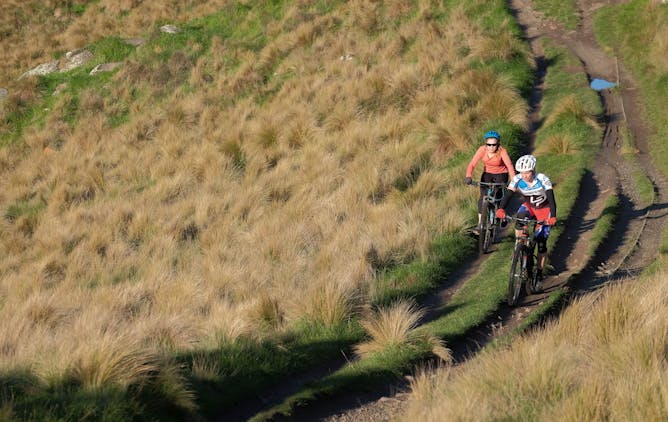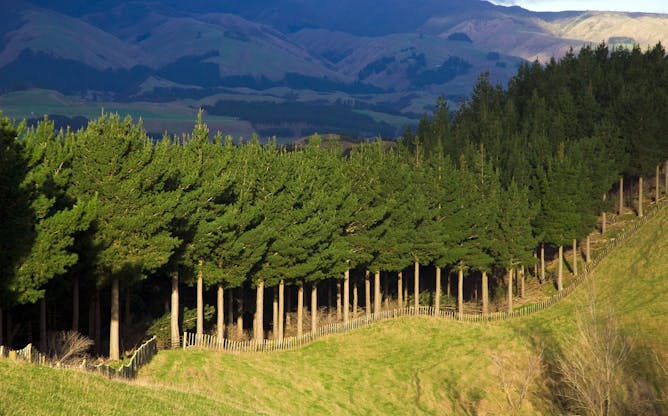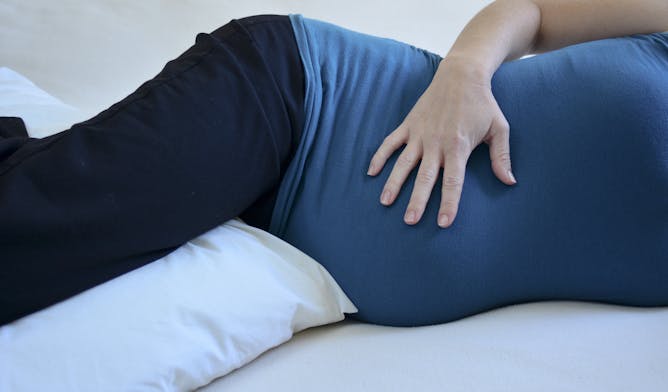|
Nau mai, haere mai - welcome to your weekly newsletter about issues that matter in New Zealand.
Sport may seem trivial in times of tragedy or disaster. But the people of Christchurch know that it can help during the slow process of recovery. Holly Thorpe and Nida Ahmad at the University of Waikato explain that recreational sports help people rebuild their lives following a traumatic experience. Their research draws on examples from conflict zones, such as young people skateboarding to cope with life in a refugee camp in Gaza, as well as
the city of Christchurch, which was still rebuilding following earthquakes when the terror attack happened.
As tensions over trade continue to build between the US and China, Victoria University of Wellington business researcher Hongzhi Gao and his team explore the spillover effects this will likely have on other countries such as Australia and New Zealand.
And Ivan Diaz-Rainey, at the University of Otago, takes a close look at a long-awaited report from the Parliamentary Commissioner for the Environment, who challenges climate policy by suggesting that forests should only be used to offset agricultural emissions, which make up half of New Zealand’s total emissions, and not carbon dioxide.
Please spread the word and encourage friends and colleagues to sign up for this newsletter.
|

Mountain bikers are reclaiming some of the tracks that were destroyed during the Christchurch earthquakes.
from www.shutterstock.com
Holly Thorpe, University of Waikato; Nida Ahmad, University of Waikato
In the weeks and months following mass trauma, such as the shootings in Christchurch, participating in physical activity can help individuals and communities deal with stress, anxiety and grief.
|

China is the world’s second largest economy.
EPA/Aleksandar Plavevski
Hongzhi Gao, Victoria University of Wellington; ivy guo, Victoria University of Wellington; Tarek Soliman, Manaaki Whenua - Landcare Research
As the trade spat between China and the US continues, it is likely to spill over to other countries. For Australia and New Zealand, this could bring both risks and opportunities.
|

The Parliamentary Commissioner for the Environment has warned that afforestation is a risky approach to combatting climate change.
from www.shutterstock.com
Ivan Diaz-Rainey, University of Otago
A new report suggests New Zealand should rethink climate policy and use forests to offset only agricultural emissions, which make up half of the country's total emissions, and not carbon dioxide.
|

Sleeping on the side is better for the baby.
from www.shutterstock.com
Lesley McCowan, University of Auckland; Robin Cronin, University of Auckland
A major study that analysed data from hundreds of pregnancies found that sleeping on the back during the final trimester increased the risk of stillbirth 2.6 times.
|

In the digital age, it can be a challenge to agree on what is, and what is not, acceptable online behaviour.
from www.shutterstock.com
Philippa Smith, Auckland University of Technology
As countries are calling for laws to control extremism online, it is becoming clear that defining the line between hate speech and free speech is a complex challenge.
|

People across the world paid their respects to those who lost their lives during the terror attack in Christchurch.
Andy Rain/EPA
Mohan Jyoti Dutta, Massey University
Research shows that one way of challenging racism is to bring people together and to allow those who experience it to share their stories.
|

The pay equity settlement acknowledged that historic gender discrimination had suppressed wages for care and support work.
from www.shutterstock.com
Katherine Ravenswood, Auckland University of Technology; Julie Douglas, Auckland University of Technology
A groundbreaking NZ$2 billion pay equity settlement has lifted the income for many care workers in aged care and community support, but it had some unintended consequences.
|